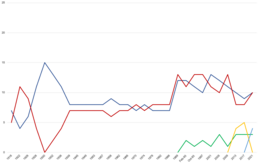
Liechtenstein is a principality governed under a semi-constitutional monarchy. It has a form of mixed constitution in which political power is shared by the monarch and a democratically elected parliament. There is a two-party system and a form of representative democracy in which the prime minister and head of government is responsible to parliament. However the Prince of Liechtenstein is head of state and exercises considerable political powers.

Political identity came to the territory now occupied by the Principality of Liechtenstein in 814, with the formation of the subcountry of Lower Rhætia. Liechtenstein's borders have remained unchanged since 1434, when the Rhine established the border between the Holy Roman Empire and the Swiss cantons.

Hans Brunhart is a political figure from Liechtenstein who served as the Prime Minister of Liechtenstein from 1978 to 1993.

Alexander Frick was a political figure from Liechtenstein who served as Prime Minister of Liechtenstein from 1945 to 1962.
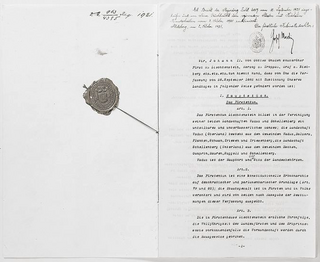
The Constitution of the Principality of Liechtenstein was promulgated on 5 October 1921, replacing the 1862 constitution.
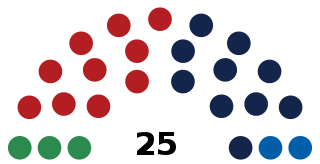
The Landtag of the Principality of Liechtenstein, commonly referred to as the Landtag of Liechtenstein, is the unicameral parliament of Liechtenstein.

Gustav Schädler was a teacher and politician from Liechtenstein who served as Prime Minister of Liechtenstein from 1922 to 1928.

General elections were held in Liechtenstein on 1 February 1970. The Patriotic Union won 8 of the 15 seats in the Landtag, the first time it had held a majority since its formation in 1936. However, it continued the coalition government with the Progressive Citizens' Party, which had been in power since 1938. Voter turnout was 94.8%, although only male citizens were allowed to vote.

General elections were held in Liechtenstein on 31 January and 2 February 1986. The result was a victory for the Patriotic Union, which won 8 of the 15 seats in the Landtag. The Progressive Citizens' Party won seven seats, whilst the new Free List narrowly failed to cross the 8% electoral threshold and did not obtain representation. The coalition government of the FBP and the VU continued.

General elections were held in Liechtenstein on 4 April 1939. Although a new system of proportional representation had been introduced to pacify voters at a time when the country was under threat from neighbouring Nazi Germany, it was not used and the elections became known as the "silent elections" as no actual vote was held. Instead, the governing Progressive Citizens' Party and opposition Patriotic Union formed a coalition, assigning a roughly equal number of seats each, in order to prevent the German National Movement in Liechtenstein from acquiring any seats in the Landtag.

Adrian Hasler is an economist and politician from Liechtenstein who served as Prime Minister of Liechtenstein from 2013 to 2021.
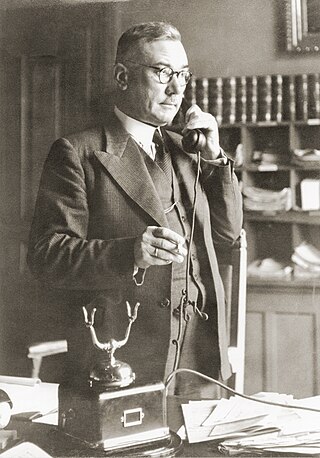
Franz Josef Hoop was a diplomat and political figure from Liechtenstein who served as Prime Minister of Liechtenstein from 1928 to 1945.
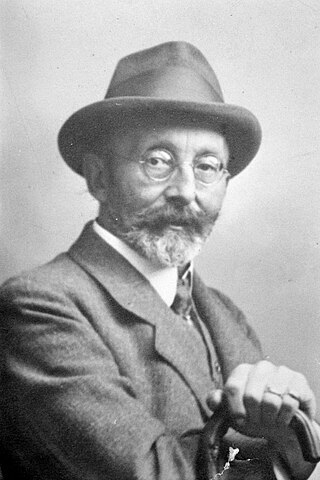
Josef Peer was an Austrian lawyer and politician who served as the Governor of Liechtenstein from 1920 to 1921.

The GustavSchädler cabinet was the governing body of Liechtenstein from 10 June 1922 to 15 June 1928. It was appointed by Johann II and was chaired by Gustav Schädler.
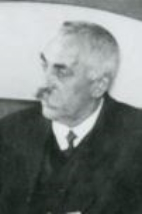
Josef Gassner was a political figure from Liechtenstein who served in the Landtag of Liechtenstein.
The November 1918 Liechtenstein putsch, also known as the Beck putsch was a de facto coup d'état by the leaders of the Christian-Social People's Party against the government of Governor of Liechtenstein, Leopold Freiherr von Imhof. The coup forced Imhof's government to resign and established a Provisional Executive Committee in his place until 7 December.

General elections are scheduled to be held in Liechtenstein on 9 February 2025 to elect the 25 members of the Landtag. They will be the 49th general elections since the ratification of the 1862 constitution.

The Josef Ospelt cabinet was the governing body of Liechtenstein from 23 March 1921 to 27 April 1922. It was appointed by Johann II and was chaired by Josef Ospelt.

The Alfred Hilbe cabinet was the governing body of Liechtenstein from 18 March 1970 to 27 March 1974. It was appointed by Franz Joseph II and chaired by Alfred Hilbe.

